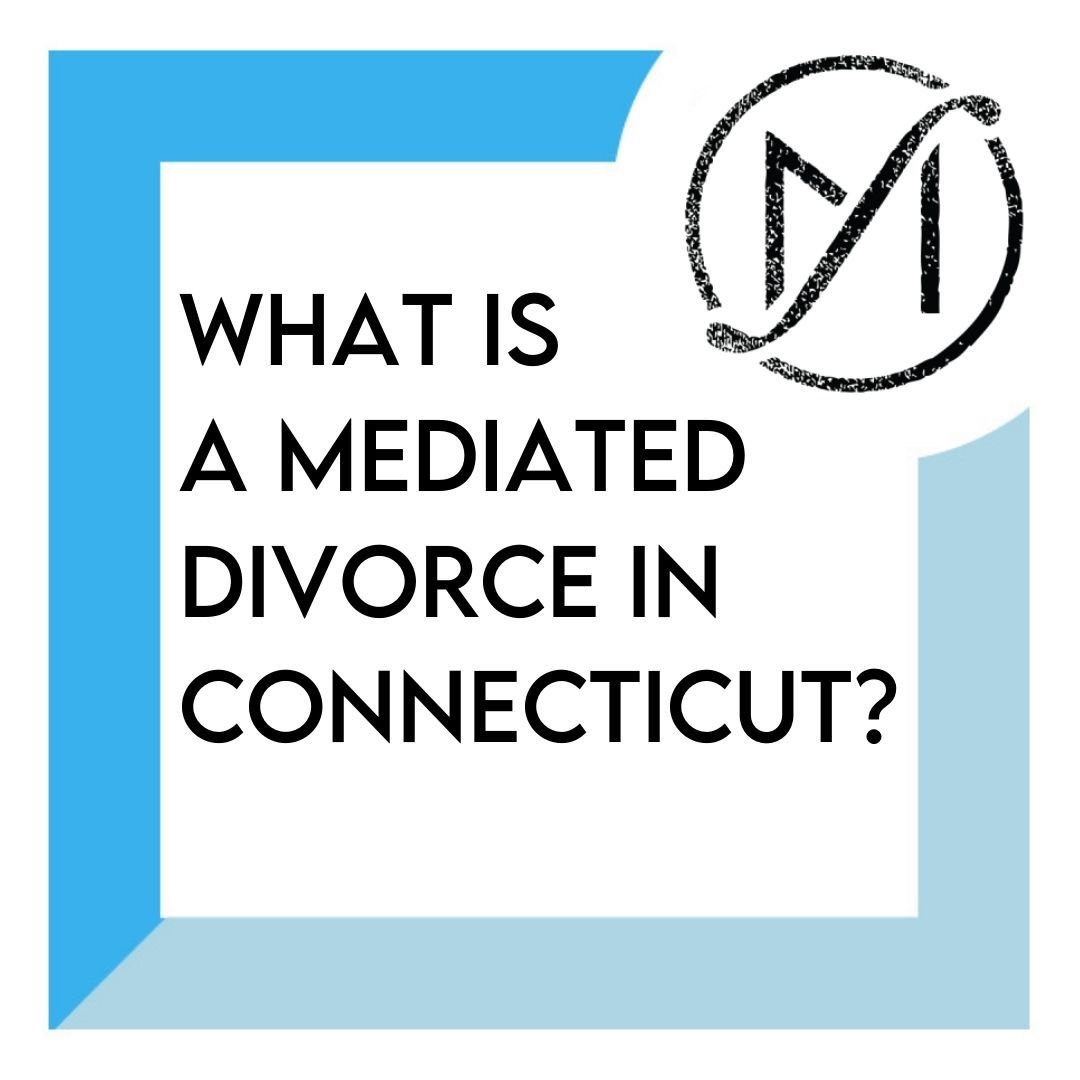What Is A Mediated Divorce in Connecticut?

In the state of Connecticut, when it comes to divorce, there are three approaches to choose from:
1. Litigated Divorce
2. Collaborative Divorce
3. Mediated Divorce
Read on to learn more about how mediated divorces work in Connecticut.
Background on Mediation, Collaborative Divorce, and Litigation
Litigated Divorce, often referred to as a “traditional divorce,” may be the best option for couples that need the help of the court when it comes to making decisions about their divorce, including custody, alimony, child support, and property.
Collaborative divorce is a non-adversarial and private approach that focuses on working together and acquiring the help of collaboratively trained divorce professionals (attorneys, mental health professionals, and financial advisors) to reach an agreeable settlement that’s fair and meets the needs of both spouses and their families.
Mediation is an alternative dispute resolution (ADR) method that can assist couples through the divorce process. In the simplest of terms, with mediation, a couple works together with their mediator, and agrees to a settlement. Mediated divorce can be effective at preserving both time and financial resources for a couple.
Read: Mediation, Collaboration, or Litigation?
Read: ADR & Divorce
More on Mediated Divorces
Mediation occurs in an informal and private setting (including virtual mediation); allowing you and your spouse to discuss and resolve your divorce outside of court. Our mediators are experienced in conflict resolution, divorce law, and divorce settlements. Your mediator will not force either of you to accept an agreement. Instead, your mediator will use conflict resolution skills and strategies to help both of you move toward an equitable resolution. One important thing to know is that we cannot make a ruling or offer legal advice as a mediator, but we can provide legal information. You and your spouse are encouraged to have your own consulting attorney review the agreements you reach in your mediation and give you legal advice. This is often referred to as review counsel.
Read: What Is Mediation in Divorce?
Benefits of Mediation
Many clients prioritize moving through their divorce efficiently in order to begin the next chapter of their lives. Mediation is not subject to the court’s timeline, so it’s possible for mediation to move more quickly than litigation. For the same reason, scheduling is more flexible in mediation than it is in a divorce both in terms of time and location.
Because mediation is often used in low conflict divorces and supports client-created resolutions, legal fees tend to be lower in mediations than in high conflict litigations.
Potential benefits of mediation include:
- Reduced costs.
- Flexible scheduling.
- Faster than trial.
- Allows parties to make independent decisions that work for their family.
Virtual Mediation
If you’re considering mediation for your divorce, you’re going to want to consider our virtual divorce mediation option. This option offers greater convenience and flexibility to the couple.
Benefits of virtual mediation:
- Join mediation sessions privately from anywhere in the world.
- Tailor the mediation process to your schedule and needs.
- Access secure video conferencing.
- Maximize convenience and minimize time and cost.
- Mediate without being in the same place at the same time.
- Resolve matters while minimizing time in court.
After one of our experienced mediators has drafted your agreement, we make sure everything gets filed so that things move smoothly for you when you go to court for your final “Uncontested Hearing.”
Why Freed Marcroft?
Freed Marcroft’s family law attorneys know that family law matters aren’t just legal issues — they are emotional processes as well. When it comes to something this important, trust the experience of Freed Marcroft. We have the knowledge and skill to guide you through the mediation process toward a mutually acceptable, cost-effective resolution.
If you find that mediation is not a great fit for your situation, give us a call, and we will help figure out a legal strategy suited to your needs. Our goal is to guide our clients through the legal aspects of their family law situation while remaining mindful of their overall wellness.
For more information about Connecticut divorce and family law, check out our Divorce Information and Facts. If you have questions or want to learn more about how our team of divorce attorneys can help you with your custody or post-judgment issue, please contact us here.
Copyright © 2021. Freed Marcroft. All rights reserved.
The information in this blog post (“post”) is provided for general informational purposes only, and may not reflect the current law in your jurisdiction. No information contained in this post should be construed as legal advice from the individual author or the law firm, nor is it intended to be a substitute for legal counsel on any subject matter. No reader of this post should act or refrain from acting on the basis of any information included in, or accessible through, this post without seeking the appropriate legal or other professional advice on the particular facts and circumstances at issue from a lawyer licensed in the recipient’s state, country or other appropriate licensing jurisdiction.
Freed Marcroft LLC
419 Main Street
Hartford, CT 06103








